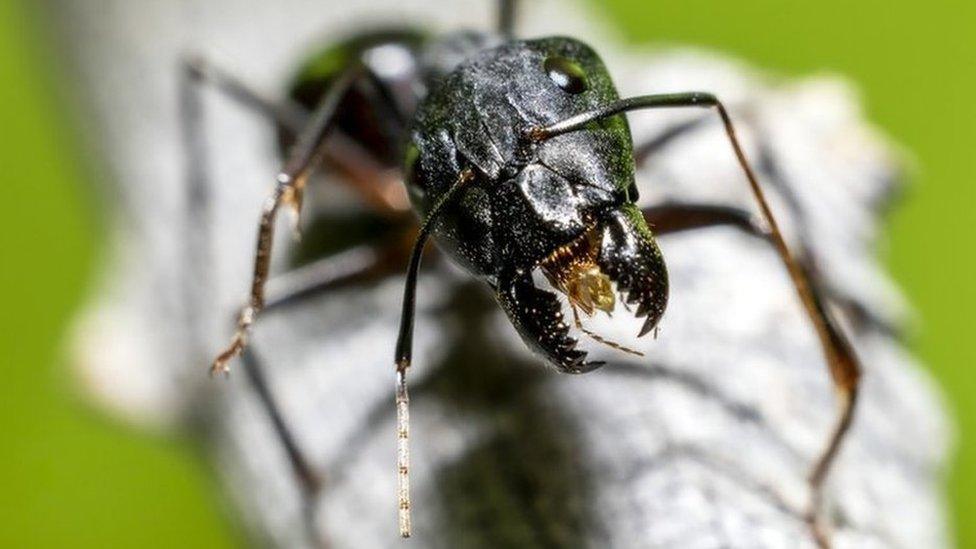Magpies with more friends are 'smarter', say scientists
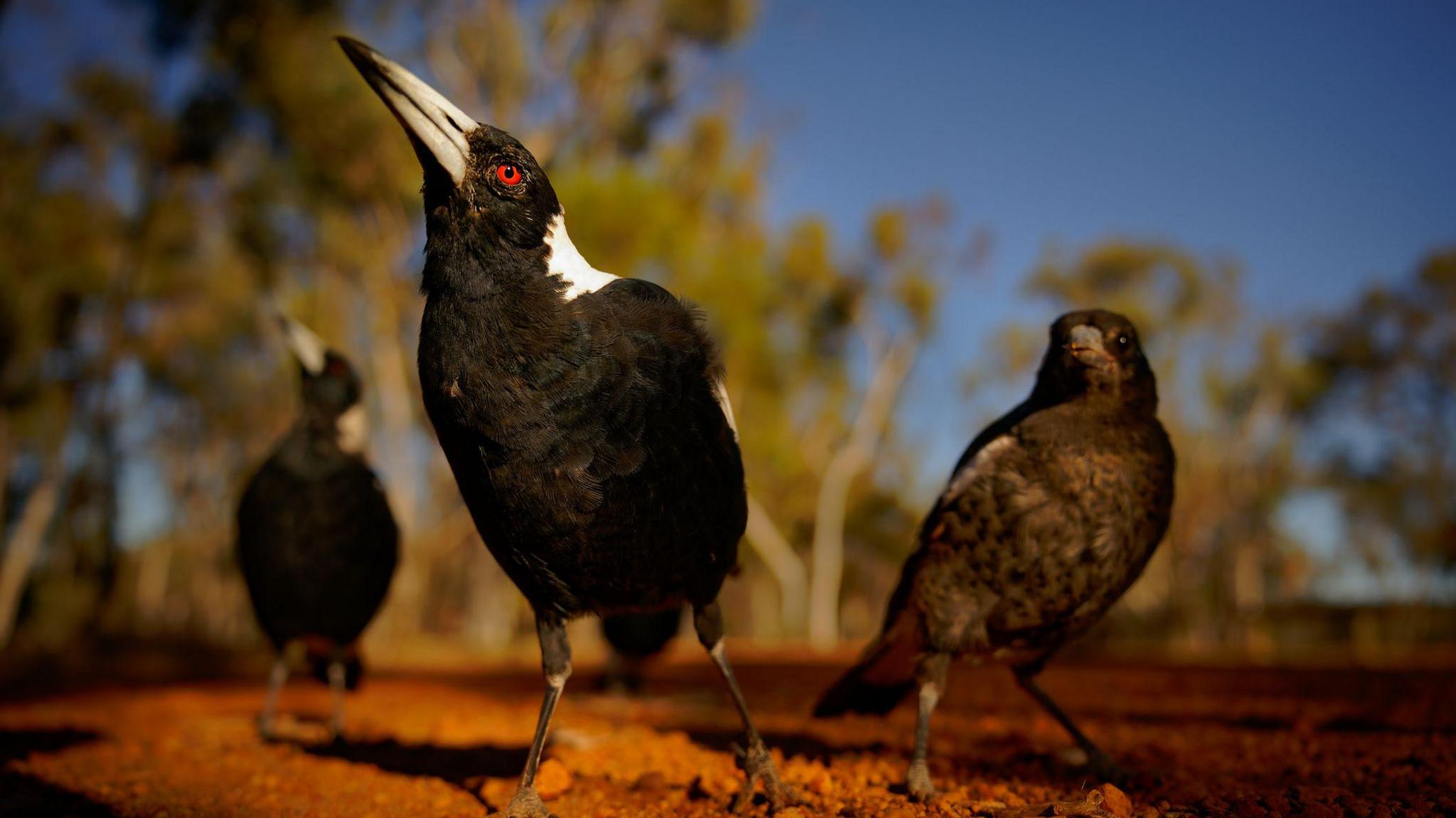
- Published
We know magpies are intelligent. With their loud cackling calls, black and white feathers and the way they hop around, they are known to be birds with real character.
Well researchers who wanted to learn more about Western Australian magpies have put their bird brains to the test and discovered they get by with a little help from their feathered friends.
The researchers believe that social experiences could be the key to understanding how they thrive, suggesting that magpies with more friends are smarter.
More bird stories
Are bright lights shrinking the eyes of our city birds?
- Published29 September 2023
Why are magpies swooping on people?
- Published3 October 2023
Six clever birds you might not know about
- Published13 September 2023
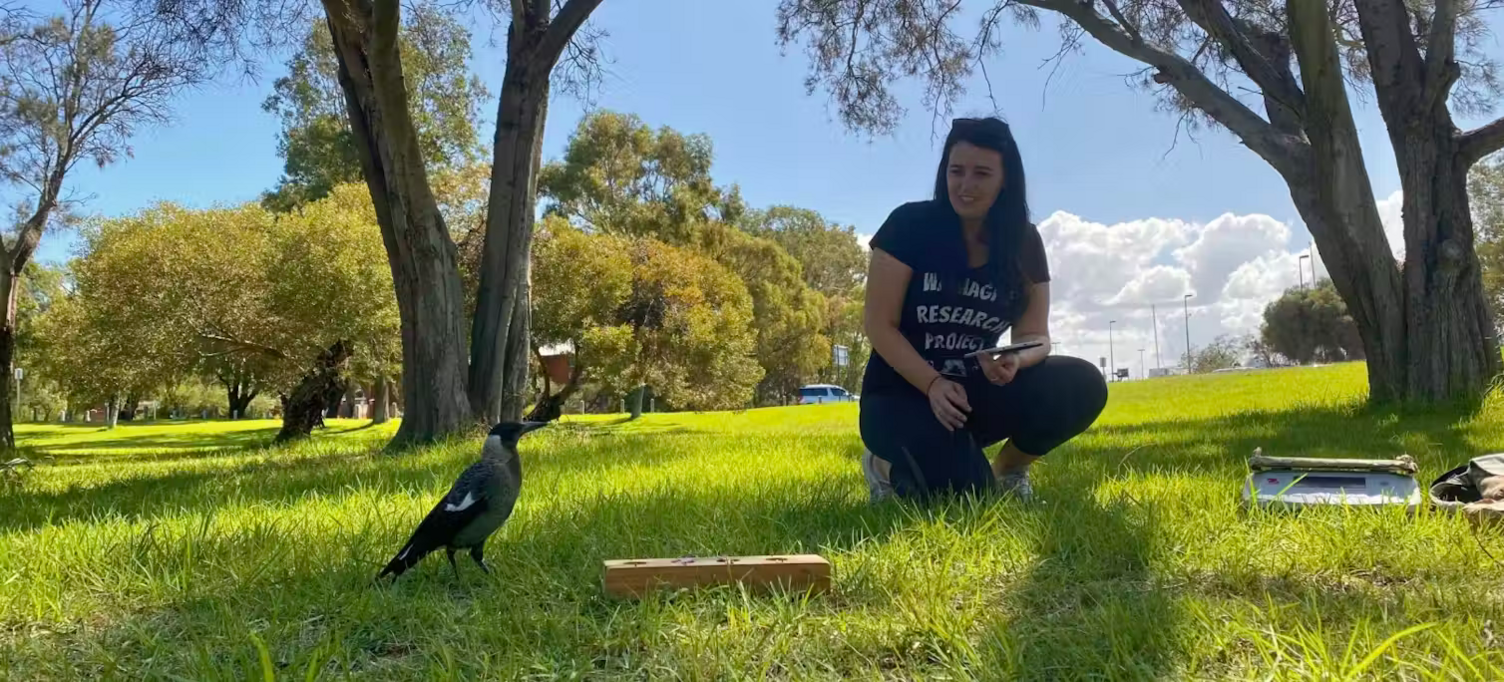
The magpies have been solving puzzles
How were the magpies tested?
The study led by Lizzie Speechley from the University of Western Australia looked at magpies who live in social groups all year round.
Young magpies - known as fledglings - and their mothers had their learning tested through wooden puzzle boards.
The boards had holes and were covered by lids with different colours. A food reward was hidden under the lid of one particular colour.
Each bird was tested alone - so it couldn’t copy the answer from its friends!
Through trial and error, the magpies had to figure out which colour was linked to the food prize.
The researchers knew the birds had figured out the answer when they picked the rewarded colour in 10 out of 12 turns in a row.
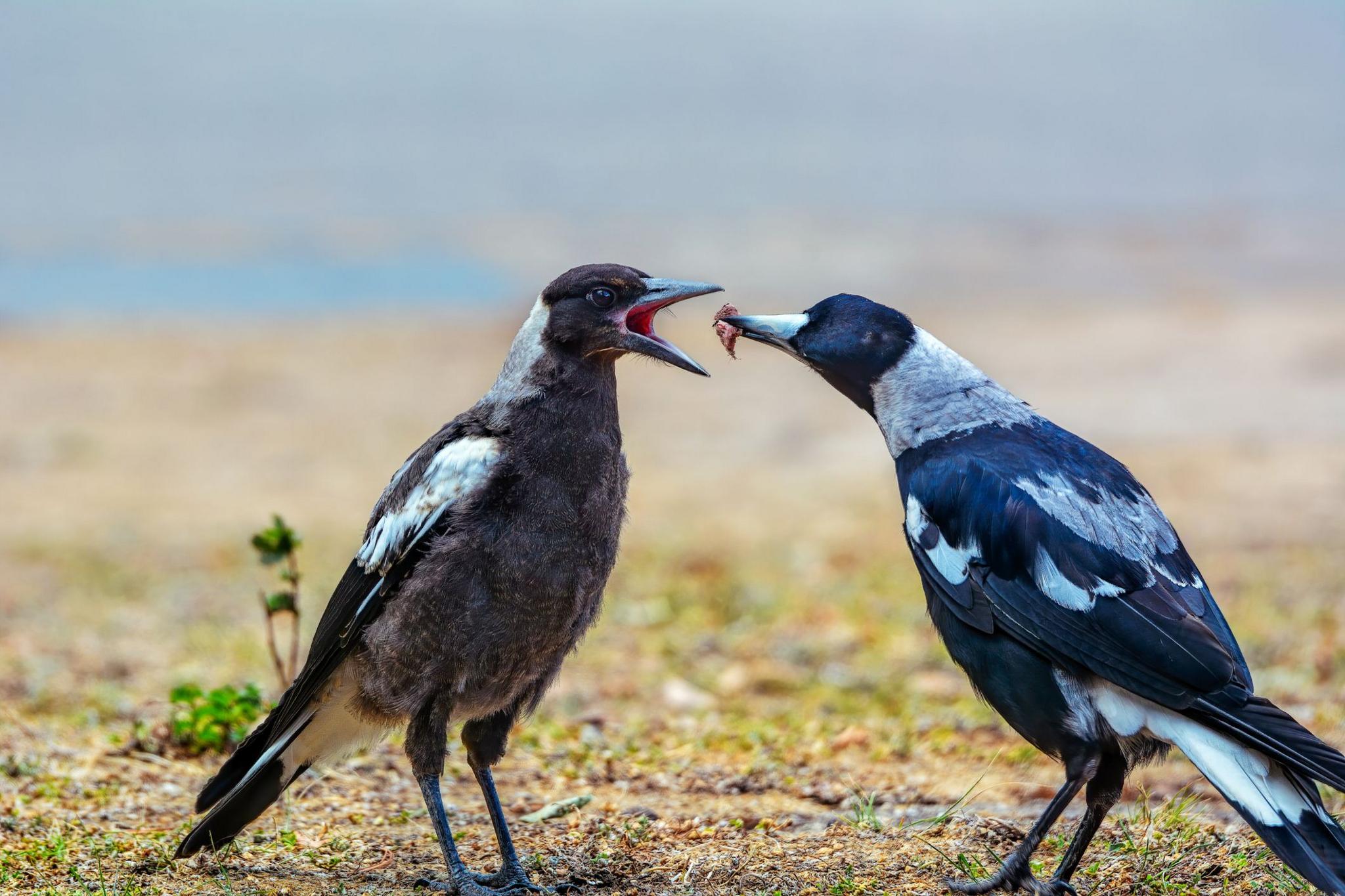
Australian magpies are social birds
What did the magpie tests show?
The baby birds were tested at 100, 200 and 300 days after leaving the nest.
While they improved at solving the puzzle as they developed, their mothers were much smarter.
What the scientists found was the size of their social group was making the difference.
Those who grew up in bigger groups solved the puzzle a lot faster than those in smaller ones.
A young magpie growing up in a group of three took more than 30 attempts to learn the link between colour and food while those in groups of ten or more needed only around 12 tries to consistently pick the right colour and to win that tasty treat!
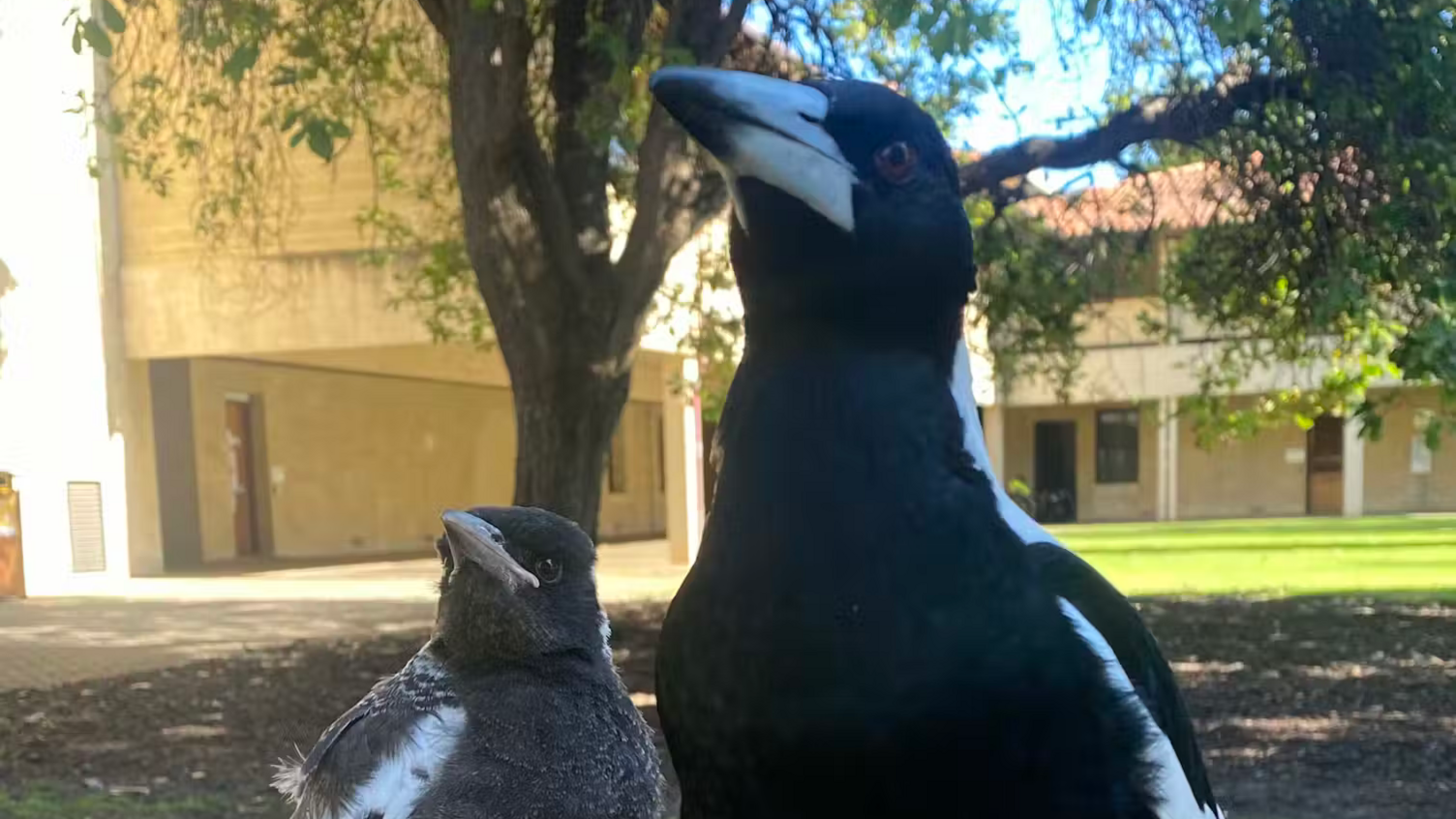
Magpie mothers were smarter than their babies
What can we learn from this experiment?
The researchers think that magpies who live in bigger groups have more demands on their brains, as they have to remember who they live with and the different relationships they have with other birds in their groups.
The theory is that remembering their social situations helps to boost their intelligence and solve problems.
Researchers on the project also believe their work could apply to other species that are social and smart too.
So that's definitely something to squawk about!
More amazing animal stories
- Published10 July 2020
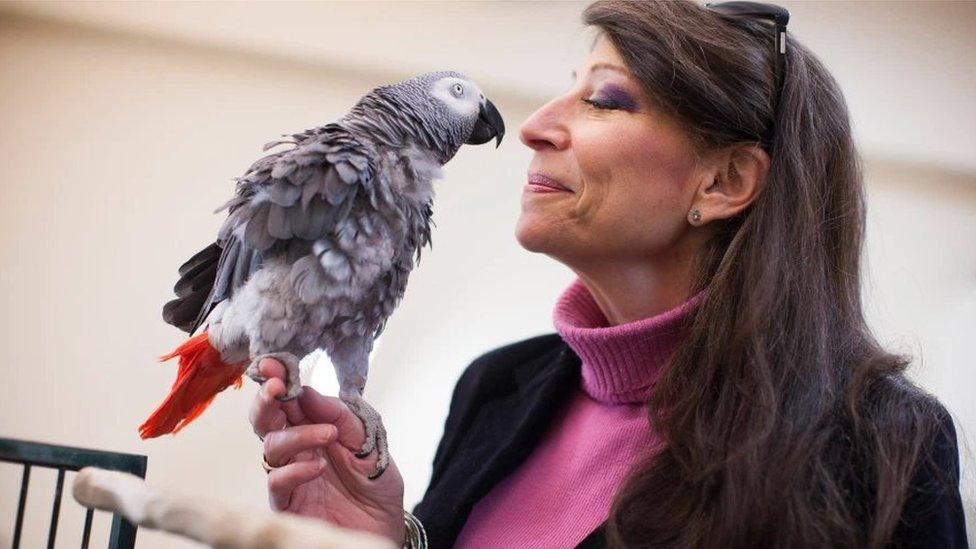
- Published28 February 2022
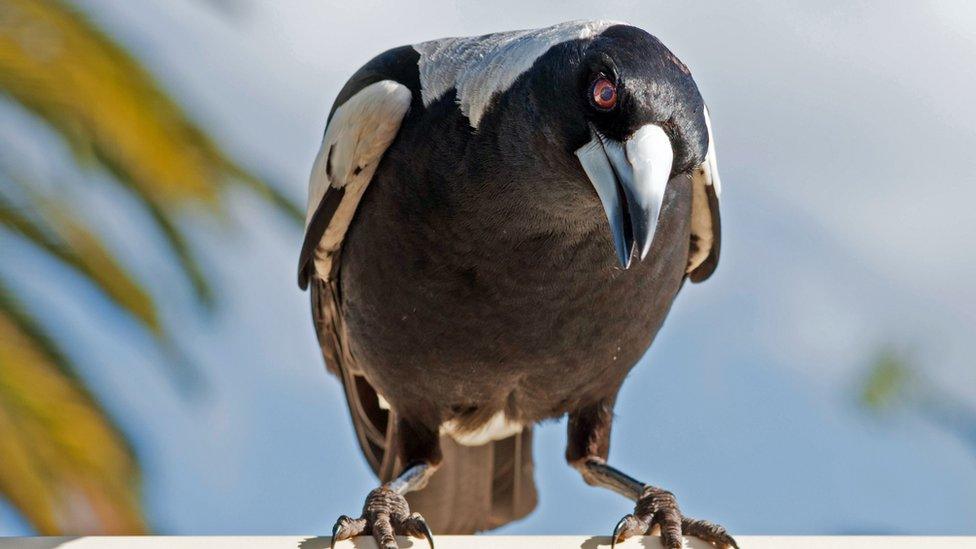
- Published7 September 2021
